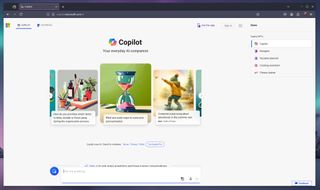Firefox and Meta develop a mechanism that promises to keep the user's data private in an unyielding ad world
Firefox might have found the perfect balance between aggressive advertising and maintaining the user's privacy.

What you need to know
- Mozilla has been under fire for shipping a private attribution prototype feature to Firefox 128, enabled by default, and is reportedly being used to collect extensive personal data for advertisers.
- Firefox CTO Bobby Holley has cleared the air by indicating the approach is designed to help advertisers achieve their goals without compromising the user's privacy.
- The approach sieves through surveillance parts deployed by advertisers to ensure the user's data remains private.
Firefox is arguably one of the best privacy-focused browsers, free from "shady privacy notices and advertiser backdoors." However, it recently received backlash after shipping an experimental feature — Privacy-preserving attribution, which collects data for advertisers.
The privacy-sensitive feature is enabled by default, which made users more concerned about Firefox's commitment to its promise of safeguarding the user's privacy. The company CTO Bobby Holley took to Reddit to address some of the privacy concerns raised.
A Word About Private Attribution in Firefox from r/firefox
Holley admits that the company should have done more about the private attribution feature while shipping it to Firefox 128. Privacy and security remain core issues that users look at when selecting their default browser on any device. Mozilla recently placed Microsoft under fire for using deceptive tactics and harmful designs to keep Windows users hooked on Edge, leaving third-party browsers with the shorter end of the stick and at a competitive disadvantage.
The CTO indicated the internet has turned into "a massive web surveillance," while talking about Mozilla's anti-tracking features designed to cripple these techniques. While the features successfully thwart these surveillance techniques, Mozilla's efforts are limited by two major impediments.
Advertisers have access to enormous economic incentives that make it easier to circumvent the measures put in place to keep their surveillance techniques at bay. The lack of alternatives doesn't make the situation better. Next up, the measures are limited to Firefox users, but Mozilla's ultimate goal is to "improve privacy for everyone."
With the rapid evolution of advertising as an economic model, it's increasingly becoming harder to maintain desired privacy standards for users. "It’s a powerful industry that’s not going to pack up and go away," added Holley. "A mechanism for advertisers to accomplish their goals in a way that did not entail gathering a bunch of personal data would be a profound improvement to the Internet we have today, and so we’ve invested a significant amount of technical effort into trying to figure it out."
As a plausible alternative to the current approach where advertisers have access to extensive personal data, Mozilla is developing a system that could potentially satisfy the advertisers' goal without compromising the user's privacy.
Get the Windows Central Newsletter
All the latest news, reviews, and guides for Windows and Xbox diehards.
The company is working closely with Meta on this project, "because any successful mechanism will need to be actually useful to advertisers, and designing something that Mozilla and Meta are simultaneously happy with is a good indicator we’ve hit the mark," added Holley.
Mozilla says the project has been ongoing for the past few years and is already showing "real promise." The company shipped an early look of the approach as part of the Firefox 128 release "that is feature-wise quite bare-bones but uncompromising on the privacy front."
How does Mozilla maintain the user's privacy but still keeps advertisers happy?

The new approach leverages a Multi-Party Computation (MPC) system called DAP/Prio. Its privacy properties have been analyzed to identify loopholes.
The prototype is temporary and restricted to a handful of test sites. It's worth noting that it only works in Firefox. The company intends to use the findings to improve the effectiveness and efficiency of the final product.
According to Firefox's CTO:
"The privacy properties of this prototype are much stronger than even some garden variety features of the web platform, and unlike those of most other proposals in this space, meet our high bar for default behavior."
While the prototype allows advertisers to access the data they want from users, Firefox promises that their data will remain protected. Moreover, users with reservations about sharing their data with advertisers can disable the feature via the settings because Firefox "supports people configuring their browser however they choose."
Finally, Firefox admits that digital advertising isn't going away, but its new approach could help scrap the unwanted surveillance parts if implemented correctly.

Kevin Okemwa is a seasoned tech journalist based in Nairobi, Kenya with lots of experience covering the latest trends and developments in the industry at Windows Central. With a passion for innovation and a keen eye for detail, he has written for leading publications such as OnMSFT, MakeUseOf, and Windows Report, providing insightful analysis and breaking news on everything revolving around the Microsoft ecosystem. You'll also catch him occasionally contributing at iMore about Apple and AI. While AFK and not busy following the ever-emerging trends in tech, you can find him exploring the world or listening to music.